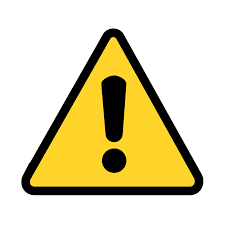Stugeron, Cinnarizine
- I. Introduction
- II. Composition of Stugeron
- III. How Stugeron Works
- IV. Uses of Stugeron
- V. Off-Label Uses of Cinnarizine
- VI. Dosage and Administration
- VII. Administration Specifics
- VIII. Side Effects of Stugeron
- IX. Serious Adverse Reactions and Contraindications
- X. Important Precautions
- XI. Overdosage
- XII. Handling and Storage Precautions
I. Introduction
Stugeron, also known as Cinnarizine, plays a role in the treatment of vestibular disorders like motion sickness and vertigo. Developed in the mid-20th century, Cinnarizine has become a medication for addressing inner ear and balance-related issues. Its origins can be traced back to the study of calcium channel blockers in Europe, which showcases its significance in historical and current medical care. The continued use of Stugeron in treatments highlights its relevance across different medical fields.
II. Composition of Stugeron
Stugerons core ingredient is Cinnarizine, which acts mainly as a calcium channel blocker with qualities. Alongside this component, the formulation contains various inert ingredients that help stabilize and improve the absorption of the main substance. In tablet form, Stugeron is available in dosages to cater to various therapeutic requirements.

III. How Stugeron Works
Cinnarizine works by blocking the entry of calcium ions into cell membranes in muscles. This helps decrease the contraction of blood vessel muscles and improves blood circulation, especially in the brain. It also affects the balance system by reducing the nerve signals that trigger motion sickness and dizziness. This two-fold mechanism not only enhances blood flow but also stabilizes sensory pathways, leading to relief from symptoms related to balance issues.
IV. Uses of Stugeron
- Inner ear or labyrinthine disorders: Including vertigo, dizziness, tinnitus, and nystagmus.
- Nausea and vomiting associated with vertigo.
- Cerebrovascular disorders: It may help with headaches, irritability, antisocial disorders, loss of memory, difficulty concentrating, and migraines.
- Motion sickness or sea sickness.
- Peripheral circulatory disorders: It enhances blood flow to the extremities1.
V. Off-Label Uses of Cinnarizine
-
- Preventing Migraines: Although not its primary indication, research suggests that cinnarizine may have a role in preventing migraines.
- Treating Tinnitus: Cinnarizine has been explored for its potential in managing tinnitus associated with Ménière’s disease and other middle ear disorders.
- While these off-label uses appear beneficial based on research, it’s crucial to consider legal and ethical aspects to safeguard patient well-being and ensure compliance with medical protocols1.
VI. Dosage and Administration
The typical amount of Stugeron prescribed for adults ranges from 25 to 75 mg per day, with adjustments depending on the seriousness and nature of the ailment. It is recommended that individuals adhere to a dosing regimen to achieve the best treatment outcomes. To ensure intake, it is suggested that Stugeron be consumed alongside meals to improve absorption and reduce the likelihood of stomach-related issues, a prevalent side effect associated with this medication.

VII. Administration Specifics
- When it comes to older individuals, it's important to be cautious when prescribing Cinnarizine due to their increased vulnerability to side effects like feeling drowsy and experiencing difficulties with motor coordination.
- As for women and breastfeeding mothers, the use of Cinnarizine should only be considered if the advantages outweigh the risks to the unborn child or baby.
- When it comes to children, it's crucial to administer Cinnarizine by adjusting the dosages based on the child's age and weight in order to prevent accidental overdose.
VIII. Side Effects of Stugeron
Patients who use Stugeron often mention feeling tired, having a mouth, and experiencing fatigue. These effects are usually mild. It tends to fade as the body gets used to the medication.
- In some cases, some people may notice weight gain or have stomach issues like nausea or constipation.
- To deal with these effects, adjusting the dose or when you take the medication is common after talking with a healthcare professional.
- If these symptoms worsen, it's essential to seek advice as they could signal more serious health concerns.
IX. Serious Adverse Reactions and Contraindications
Though uncommon, it's crucial to address any severe adverse effects, such as allergic reactions or neurological issues like tremors or confusion.
Immediate medical attention is necessary to prevent complications. Patients who have a known sensitivity to Cinnarizine or those with liver or kidney conditions should steer clear of using Stugeron due to contraindications.
When it comes to medications, strychnine can have significant interactions with CNS depressants, which can increase drowsiness and antihypertensive agents impacting blood pressure regulation.
X. Important Precautions
Prior to starting Stugeron treatment, patients need to share their medical background to determine if this medication is appropriate. This involves talking about health issues and medications being taken. It may be advised to check blood pressure and liver function tests while using the medication to catch any negative effects early on. Patients need to stay alert for symptoms like tiredness, heart palpitations, or unexplained swelling and seek prompt medical help if needed.
XI. Overdosage
Signs of taking too much Stugeron include feeling very sleepy, queasiness, and throwing up. In situations breathing problems and heart issues can also happen. If someone takes much over a long period it could cause more severe health problems, like nerve and heart troubles. When there is an overdose, it's important to get help right away. Treatment usually includes helping with symptoms and sometimes using stomach pumping or giving activated charcoal within an hour after swallowing the medication.

XII. Handling and Storage Precautions
Stugeron should be kept in a dry place away from direct sunlight to maintain its effectiveness. When handling the tablets make sure they are not in contact, with moisture and handle them with hands. Properly dispose of any expired medication to prevent environmental contamination.






















